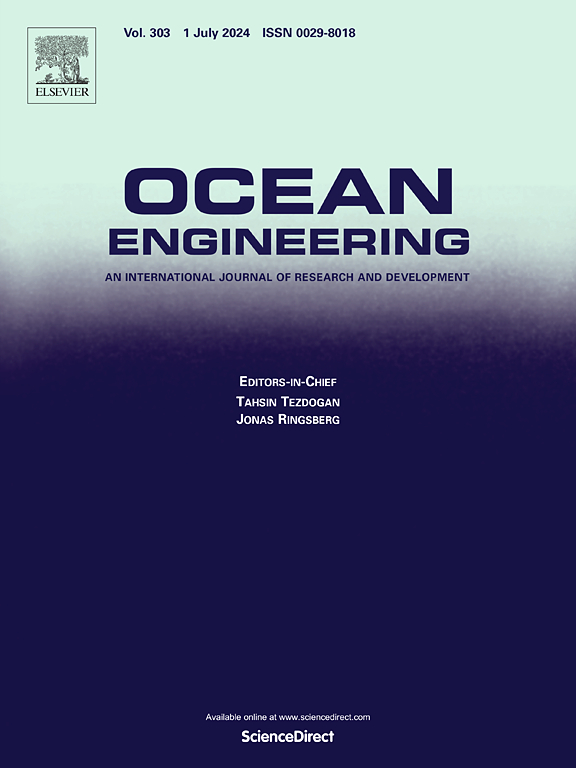Virtual-physical collaborative intelligent fault diagnosis for marine rotating machinery under data scarcity towards digital twin
IF 5.5
2区 工程技术
Q1 ENGINEERING, CIVIL
引用次数: 0
Abstract
In the domain of marine rotating machinery (MRM), the scarcity of high-quality fault data poses a critical barrier to the development of reliable and generalizable intelligent fault diagnosis (IFD) systems. To address this challenge, virtual-physical data collaboration under the digital twin paradigm has emerged as a promising direction. This review examines 117 representative publications, offering a comprehensive analysis of virtual-physical IFD approaches for MRM under data-scarce conditions. The review identifies key failure modes in critical MRM components and introduces a virtual-physical collaborative IFD framework, integrating high-fidelity virtual data and limited physical measurements to construct robust diagnostic models. Three categories of virtual modeling techniques are analyzed, along with fidelity validation strategies for ensuring model reliability. It further compares three collaborative learning strategies: parameter sharing, domain adaptation, and adversarial transfer learning, assessed for diagnostic accuracy and data augmentation effectiveness. Comparative results reveal that parameter sharing fits aligned domains, domain adaptation improves generalization under imbalance, and adversarial learning supports diagnosis when fault data is entirely absent. This review concludes by outlining key challenges such as system-level virtual modeling and lightweight deployment, and recommending future directions to support scalable DT-driven IFD in maritime applications, offering critical insights for managerial decision-making on adopting these technologies.
面向数字孪生数据稀缺的船舶旋转机械虚拟物理协同智能故障诊断
在船舶旋转机械(MRM)领域,高质量故障数据的缺乏是开发可靠、通用的智能故障诊断(IFD)系统的关键障碍。为了应对这一挑战,数字孪生范式下的虚拟物理数据协作已经成为一个有希望的方向。本综述审查了117份代表性出版物,对数据稀缺条件下MRM的虚拟物理IFD方法进行了全面分析。该综述确定了关键MRM组件的关键失效模式,并引入了虚拟物理协作IFD框架,集成了高保真虚拟数据和有限物理测量来构建健壮的诊断模型。分析了三类虚拟建模技术,以及保证模型可靠性的保真度验证策略。它进一步比较了三种协作学习策略:参数共享、领域适应和对抗性迁移学习,评估了诊断准确性和数据增强有效性。对比结果表明,参数共享拟合对齐域,域自适应提高了不平衡情况下的泛化能力,对抗学习支持故障数据完全缺失时的诊断。本综述总结了系统级虚拟建模和轻量级部署等关键挑战,并建议了支持海事应用中可扩展的dt驱动IFD的未来方向,为采用这些技术的管理决策提供了关键见解。
本文章由计算机程序翻译,如有差异,请以英文原文为准。
求助全文
约1分钟内获得全文
求助全文
来源期刊

Ocean Engineering
工程技术-工程:大洋
CiteScore
7.30
自引率
34.00%
发文量
2379
审稿时长
8.1 months
期刊介绍:
Ocean Engineering provides a medium for the publication of original research and development work in the field of ocean engineering. Ocean Engineering seeks papers in the following topics.
 求助内容:
求助内容: 应助结果提醒方式:
应助结果提醒方式:


